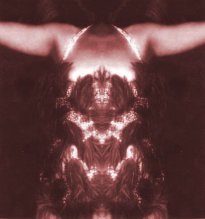 |
|
The Octologue is a snippet of eavesdropped conversation, a bit of dialogue, monologue, any thought that is or can be spoken aloud. It must be a complete thought. It can answer a question; it can lead to more questions, leaving the reader begging to hear the answers. The Octologue is eight metered lines with each line traditionally capped. The pattern is: 3/5/3/3/5/3/3/3. Here is an example of the octologue as inspired by Catherine: Whisper of the Old Queen Mandricart, Thanks to the Internet, the octologue took flight. It made its way from Massachusetts to Bothell, Washington, where the John L. Platt Memorial Poetry Group used it as a monthly exercise after being introduced to the form by group member Ginger Wiegman-Cousens. Ms. Wiegman-Cousens, a Seattle-based poet, "… enjoys the challenge of the form, being forced to construct a complete thought in twenty-eight syllables," as she illustrates in her poem Transmogrifying: Here in hell, The octologue crossed the United States border into Canada, where Saskatchewan poet Roberta Swetlow took the form in a new direction by employing familiar, modern-day conversation as in these two poems: Keys Where are they? Untitled I just saw Back in the States, New York poet Charlene Howard adopted the form as her own, having written some sixty plus octologues. She states, "… the octologue forces me to say exactly what I want prohibiting me from becoming too wordy; I must get straight to the point, prohibiting room for clutter and fluff. It is not a complex form and is conducive to any genre, though I prefer to use the form for works of a darker bent . . . " as she shows us here: I'm Cold It's cold here; Gatekeeper Woe is me! Edgar Gloom master - Horror writer Joseph Armstead, author of The Screaming Season, recently penned the following octologue, Waltzing at Midnight: In darkness In shadows Dressed in gloom, In darkness, Armstead calls the form: " . . . a unique writing experience, a challenge, requiring the writer to abandon prescribed expectations of form and meter and to actually free themselves to create in an arrythmical, but logically-progressive flow. Once begun, the next set of thoughts and images begin to build one upon the other in a very natural and organic way." You will note that Mr. Armstead "corrupted" the form to best suit his writing. I, too, corrupted the form in the following poem, Anne Boleyn Pens a Death Note based on the Queen's last documented words: Poor Henry, Your council My neck is Poetry being an interpretive art, corruption is welcome; in fact, it is heartily encouraged!
Note: All poems used are copyrighted by their authors and are used with their permission. Horror author and poet Patricia Gomes, creator of the Octologue, is a free-lance writer wearing out her keyboard on the coast of Massachusetts.
|
IBPC is Sponsored by Web del Sol 2020 Pennsylvania Ave., NW Suite 443 Washington, DC 20006 Web Designed by Mike Neff
|


